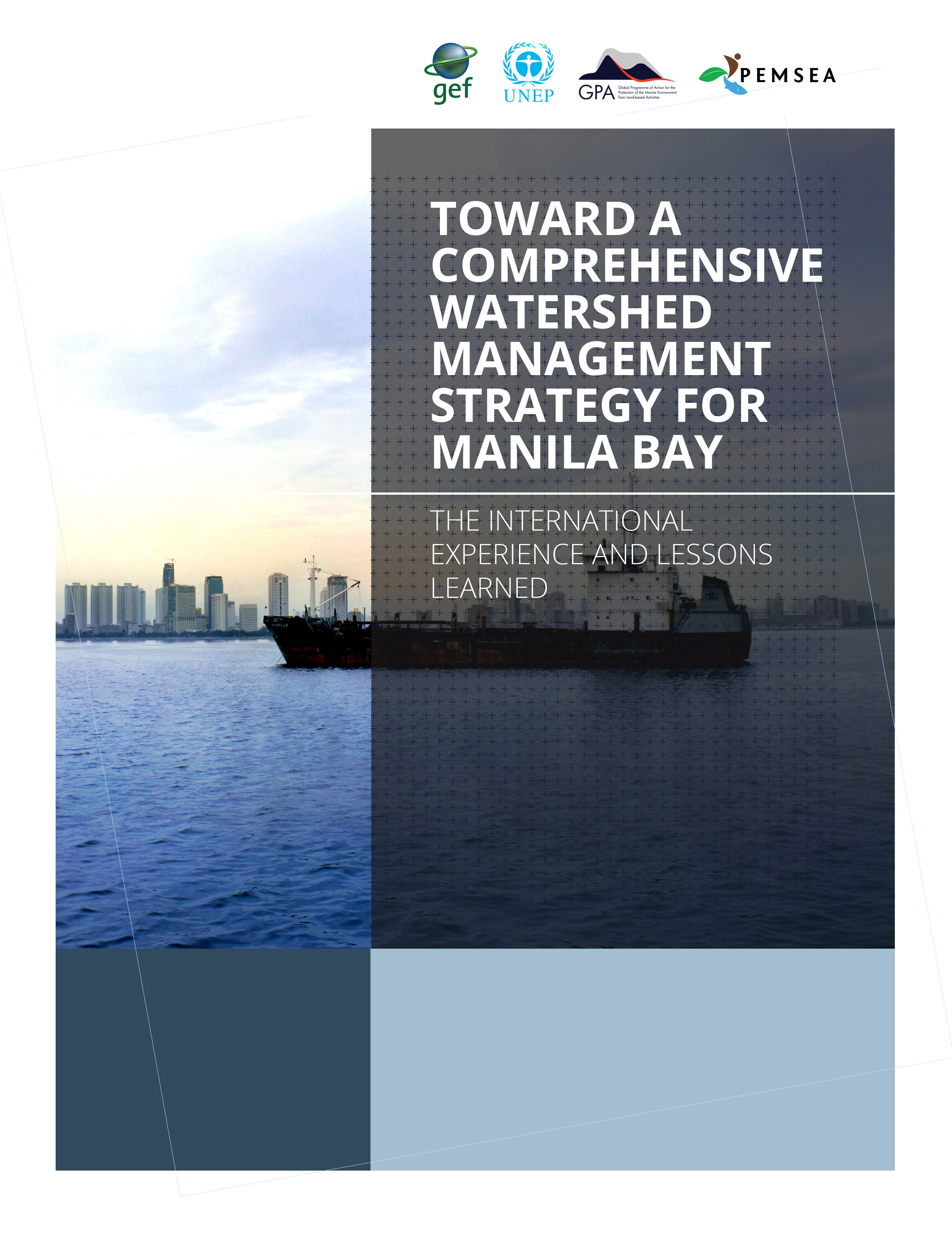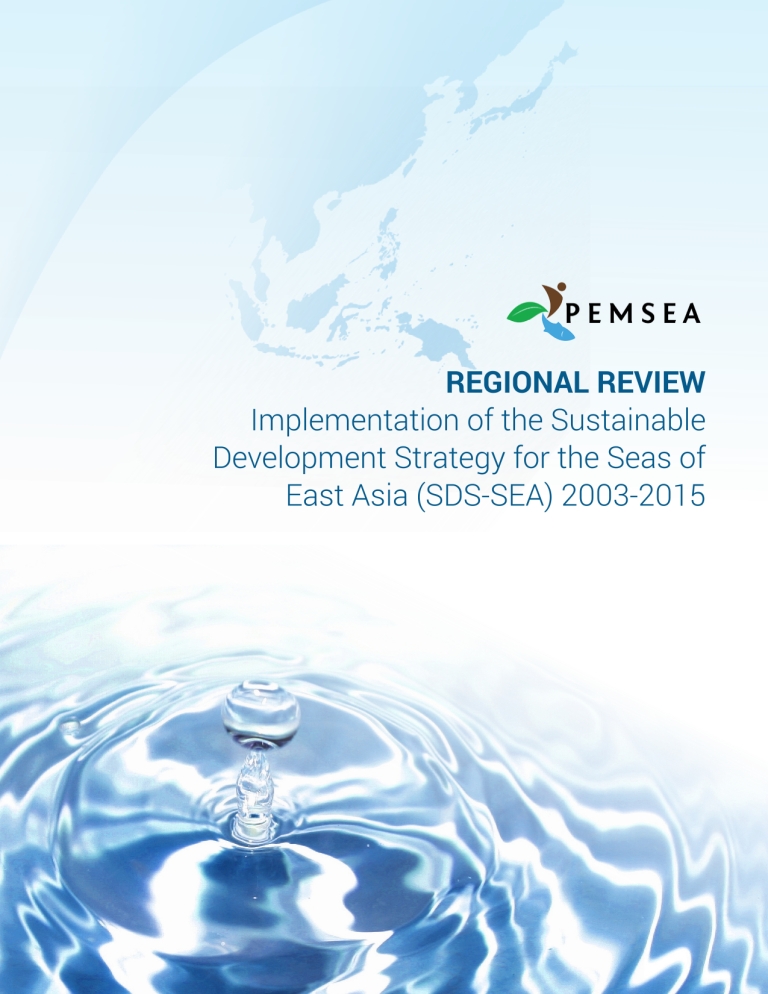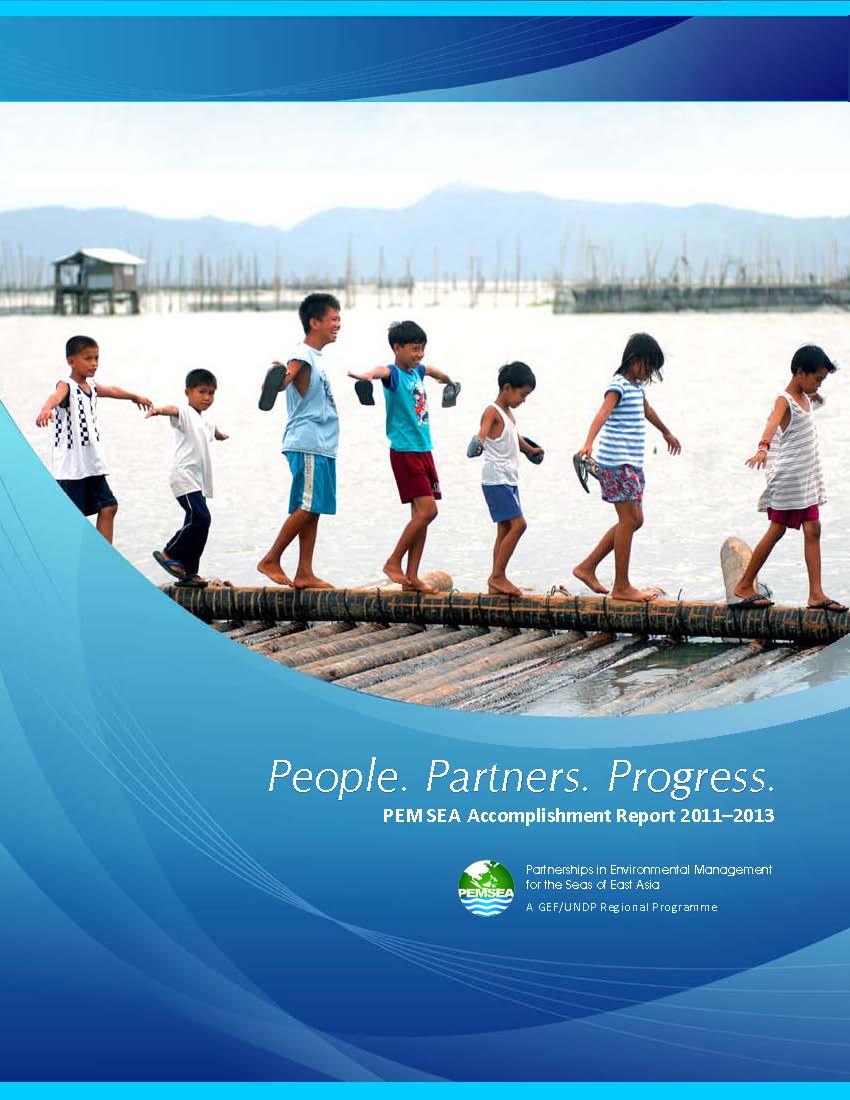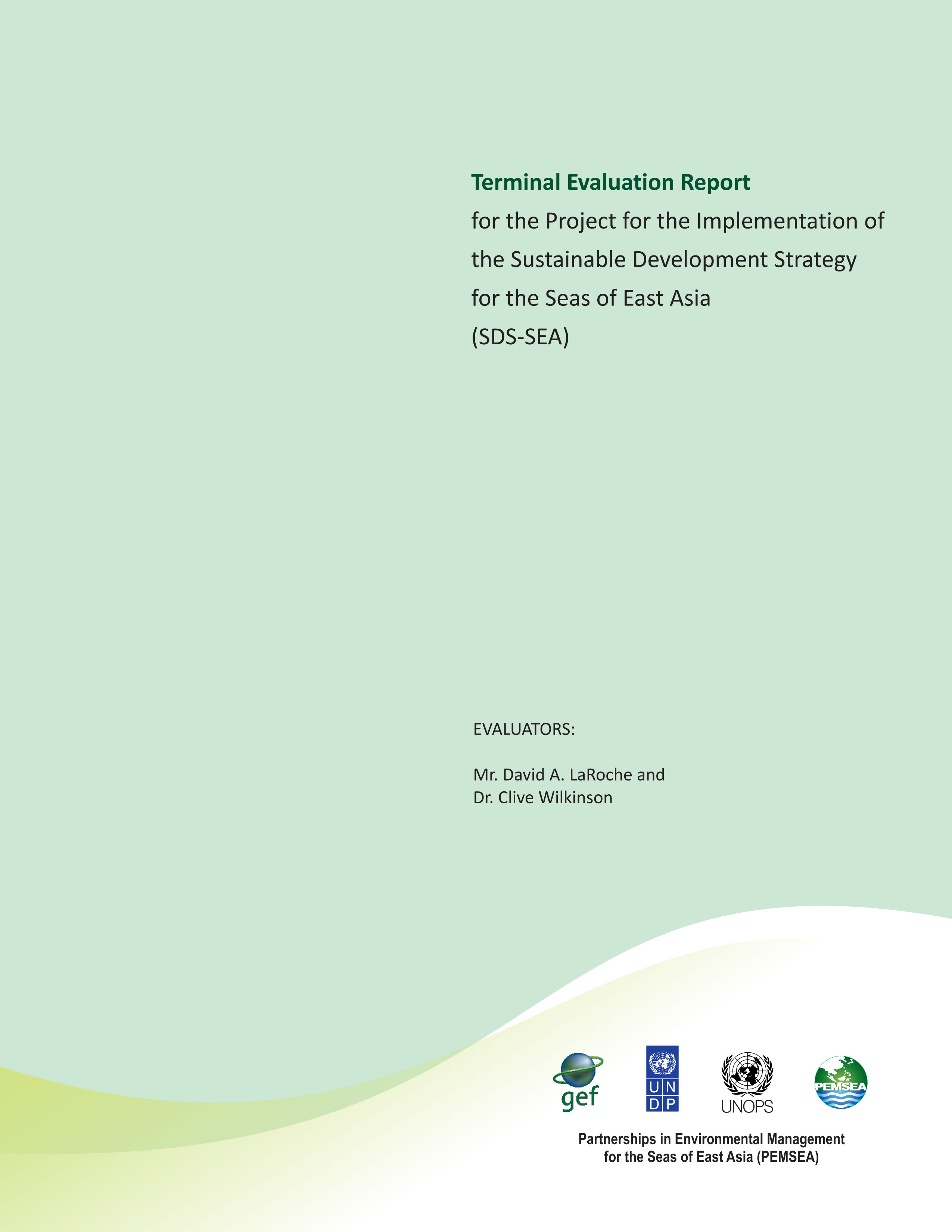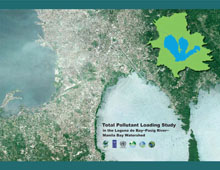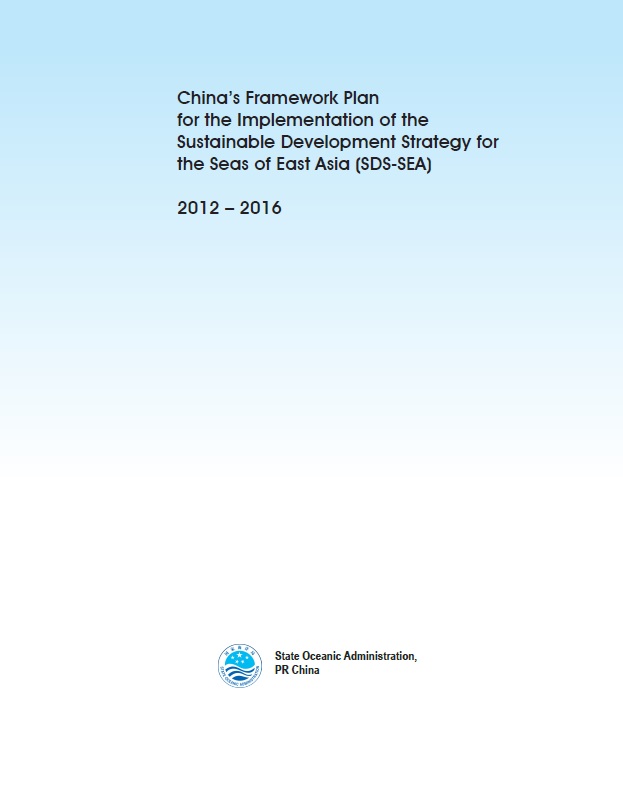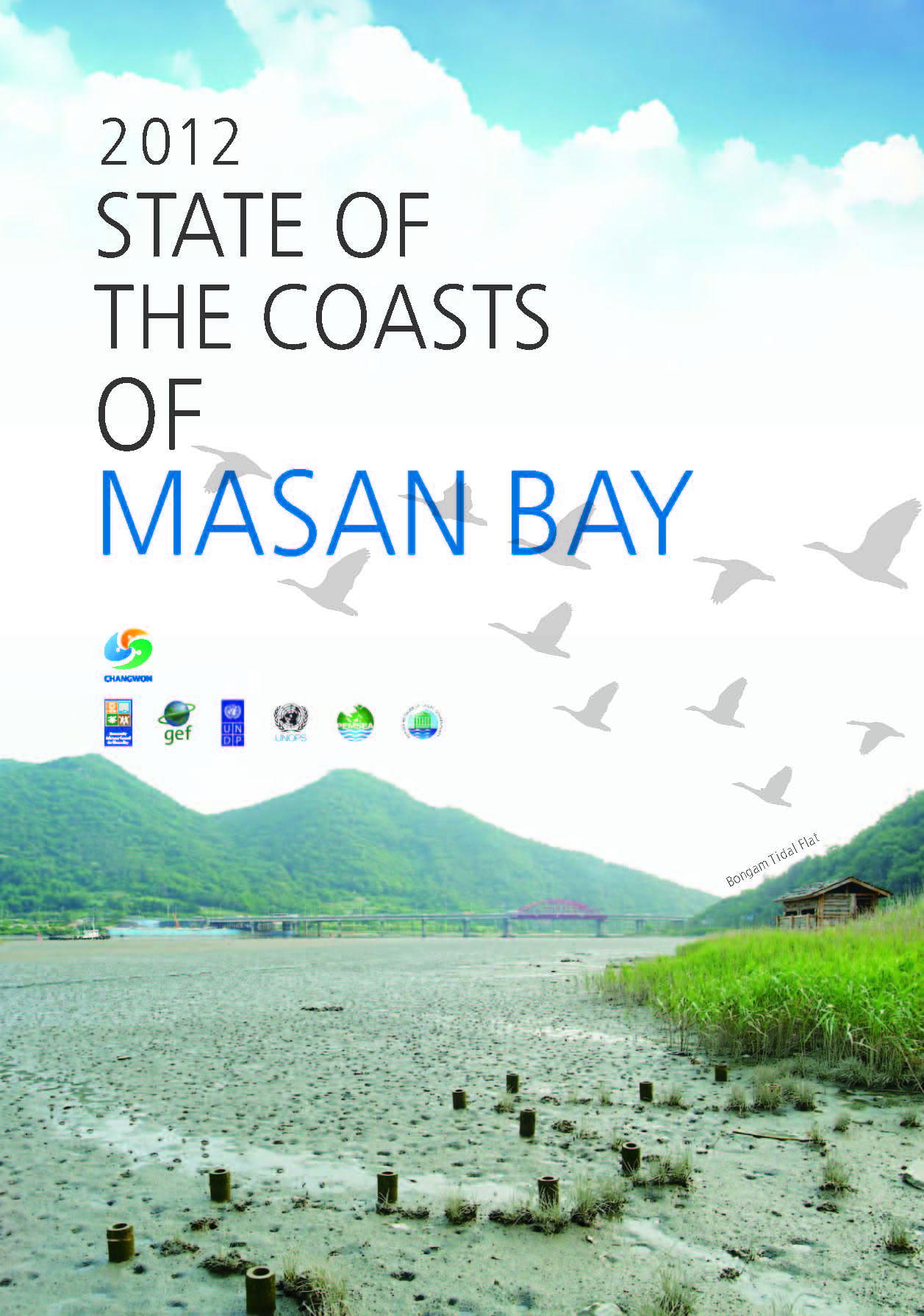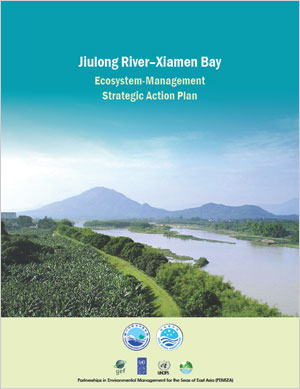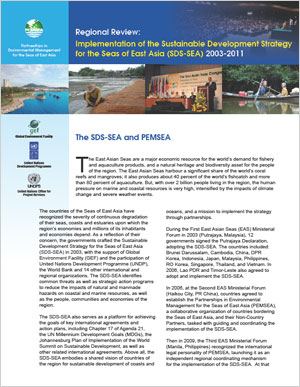
Breadcrumb
-
Toward a comprehensive watershed management strategy for Manila Bay : The international experience and lessons learned
Cy Jones of the World Resources Institute (WRI) developed a set of preliminary recommendations for strategies and tools for use in the restoration of Manila Bay. This report presents a brief introduction to Manila Bay issues and the application of lessons learned from other international experience.
-
Regional Review : Implementation of the Sustainable Development Strategy for the Seas of East Asia (SDS-SEA) 2003-2015
The Regional Review highlights the overall progress of PEMSEA's 12 partner countries on regional and national levels. The review measures the implementation of the Sustainable Development Strategy for the Seas in East Asia using PEMSEA's Framework.
-
People. Partners. Progress. PEMSEA accomplishment report
PEMSEA's latest accomplishment report presents the achievements and collaborative actions of the organization from July 2011 to July 2013. The events and successes of the past two years were both crucial and meaningful to PEMSEA as it celebrates 20 years of pursuing the shared vision of sustainable development in the East Asian Seas, and prepares to advance to the next phase of scaling up the implementation of the SDS-SEA. Aside from completing the activities and consolidating the results of the regional project on SDS-SEA implementation, PEMSEA has also taken significant steps these past two years in establishing itself as a full-fledged self-sustaining regional organization. PEMSEA has also focused on increasing its efforts in enhancing the region's intellectual capital and human resources in ICM through capacity development programs; and promoting PEMSEA's message to a wider audience through events, policy advocacy, and communications and media. As highlighted in this report, PEMSEA has also scaled up the implementation of ICM in several coastal communities and has put forward initiatives in strengthening, as well as documenting, the region’s wealth of knowledge and experience in marine and coastal governance.
-
Terminal Evaluation Report for the Project for the Implementation of the Sustainable Development Strategy for the Seas of East Asia (SDS-SEA)
The Project's objective is to facilitate implementation of the Sustainable Development Strategy for the Seas of East Asia (SDS-SEA), as adopted by East Asian countries in December 2003, through the mobilization of the necessary partnership arrangements, operating mechanisms, intellectual capital, support services and resources for the achievement of their shared vision of sustainable use of coastal and marine resources of the region and the development targets of the WSSD Plan of Implementation and that of the UN MDGs. The Terminal Evaluation Report examines the progress and performance of the Project for part of PEMSEA's transformation period and all of the transformation phase that began in 2010. The evaluation also identifies and addresses causes and issues that may have constrained the achievement of set targets.
-
Total Pollutant Loading Study in the Laguna de Bay–Pasig River–Manila Bay Watershed
The study on the total pollutant loading in the Laguna de Bay–Pasig River–Manila Bay watershed was conducted in support of the mandamus by the Supreme Court of the Philippines to fully implement the Operational Plan for the Manila Bay Coastal Strategy of the Department of Environment and Natural Resources (DENR) for the immediate rehabilitation, restoration and conservation of Manila Bay. The study aims to draft a pollution reduction strategy by identifying key sources of pollutants in Manila Bay. The watershed is deemed to contribute the largest proportion of pollutants entering Manila Bay and, therefore, reduction in pollution loads from these areas will directly affect the overall water quality in Manila Bay.
Print version is available for FREE. Pay only for the shipping cost.
-
China’s Framework Plan for the Implementation of the Sustainable Development Strategy for the Seas of East Asia (SDS-SEA)
China is a coastal nation endowed with vast land areas and sea expanse, with 18,000 km of mainland coastline, 14,000 km of island coastline and more than 6,900 islands, each with a land area of over 500 m2 . The rich marine natural resources and valuable ecosystem services of the country’s coastal and sea areas provide the foundation for its continued national economic and social development. Yet fragility of coastal and marine ecosystems, failure of coastal governance to underpin the interconnectedness between land and sea, nutrients and sediments from land-based sources from urban and agricultural production, sea use conflicts, frequent incidences of natural and manmade disasters, and other driving forces are increasingly becoming constraints to sustainable coastal and marine development. A shift to a new paradigm of coastal and ocean governance has become an urgent priority in China and other countries bordering the seas of East Asia.
-
State of the Coasts of Masan Bay 2012
The 2012 State of the Coasts of Masan Bay provides a comprehensive assessment of the socioeconomic and environmental status of Masan Bay, RO Korea, including the management interventions and implementing arrangements that have been put in place for the sustainable development of the Bay.
-
Jiulong River-Xiamen Bay Ecosystem Management Strategic Action Plan
The objective of the Ecosystem-based Jiulong River and Xiamen Bay Management Strategic Action Plan (JXSAP) is to establish a trans-jurisdictional Jiulong River and Xiamen Bay ecosystem management framework involving the city of Xiamen, Zhangzhou and Longyan. Based on an ecosystem approach, the JXSAP has identified and analyzed key environmental problems, developed a Jiulong River–Xiamen Bay pollution mitigation plan, ecological conservation and management plan and a monitoring program. Jiulong River is the second longest river in Fujian Province, a major source of pollutants to Xiamen Bay as well. In recognition of the environmental impact of upstream pollution, the Fujian Provincial Government approved a comprehensive water pollution and ecosystem rehabilitation project in 1999, which involved adoption of a number of policies and regulations on water pollution prevention and treatment and investment. Given the complexity of the river basin itself and the socioeconomic pressures from continued growth, the trans-jurisdictional ecological and environmental problems from the river basin to estuary remain unabated. From 1994 to 1998, the Xiamen Municipal government resolved sea use conflicts and coastal environmental pollution through an integrated coastal management (ICM) approach, including innovative legislation and institution arrangements, coordination by the municipal government, scientific support, joint law enforcement and public participation, with the assistance of the GEF/UNDP/IMO Regional Programme for the Prevention and Management of Marine Pollution in the East Asian Seas project. Based on the lessons learned from the water pollution and ecosystem rehabilitation project, and the success of the integrated approach to addressing environmental pollution and sea use conflicts, Xiamen began to scale up its ICM program. The up scaling involved integrating pollution control, ecosystem-based river basin management and Xiamen Bay management into a regional economic development initiative involving downstream and upstream cities. In 2004, Xiamen, Quanzhou and Zhangzhou established the City Alliance, an initiative among the three major cities in southeast Fujian to promote regional economic development. Longyan, a city at the upstream of Jiulong River, north of Zhangzhou City, became a member as well. While economic development topped the agenda of the Alliance, conservation of the water environment of offshore areas and maintenance of ecosystem services of Jiulong River were important elements proposed by the Municipal Government of Xiamen. During the implementation of the second phase of the Partnerships in Environmental Management for the Seas of East Asia (PEMSEA), the Xiamen Municipal Government developed and adopted an ICM Strategic Action Plan in 2005. Integral to the plan were: (a) strengthening the ICM program and the ICM coordinating mechanism; (b) establishing a regional coordinating mechanism and integrated land and coastal area management mechanism; (c) creating an integrated Jiulong River management coordination committee between Xiamen, Zhangzhou and Longyan; (d) establishing an integrated Jiulong River Management Action Plan; and (e) setting up an integrated Jiulong River Management financial mechanism. With the approval of the West Taiwan Strait Economic Zone in 2009, the incorporation of the integrated Jiulong River and Xiamen Bay management plan into the State economic development strategy gained further momentum. Under this framework, the Xiamen Ocean and Fishery Bureau commissioned a joint study by the Third Institute of Oceanography of the State Oceanic Administration (SOA) of China and Xiamen University to develop a strategic action plan for an ecosystem-based Jiulong River and Xiamen Bay management. The process involved field surveys, interviews with local communities and staff from the sectors of ocean, environment, agriculture and forestry of the three cities, collection of socioeconomic and ecological environment data, desk review of available management plans and management options, and data analysis. SOA and the National Oceanic and Atmospheric Administration (NOAA) of the United States provided generous support to the project team in scoping, problem analysis, and sharing of lessons from other river basins, in particular the Chesapeake Bay, through their experts. The objective of the Ecosystem-based Jiulong River and Xiamen Bay Management Strategic Action Plan (JXSAP) is to establish a trans-jurisdictional Jiulong River and Xiamen Bay ecosystem management framework involving the city of Xiamen, Zhangzhou and Longyan. Based on an ecosystem approach, the JXSAP has identified and analyzed key environmental problems, developed a Jiulong River–Xiamen Bay pollution mitigation plan, ecological conservation and management plan and a monitoring program. The ultimate aims of the plans are to enhance the management capacity of Jiulong River and Xiamen Bay, relieve pressure of Jiulong River on Xiamen Bay and ensure river-bay ecological safety. There is no doubt that implementation of the action plan will be advantageous to raising awareness of various stakeholder groups, promoting environment education of the public, establishing sustainable financing mechanisms between the river basin and the bay area, enhancing the coordination capacity between upstream and downstream cities and, ultimately, managing a living river basin and bay that can meet the needs of the present and future generations in the area.
-
Regional Review: Implementation of the Sustainable Development Strategy for the Seas of East Asia (SDS-SEA) 2003-2011
The SDS-SEA review process commenced in March 2010. All PEMSEA Country Partners and the majority of the Non-Country Partners participated in the process, which entailed: (a) a desktop review of progress and development in support of SDS-SEA objectives and targets in each participating country; (b) a survey of PEMSEA Non-Country Partners to identify initiatives that contribute, directly and indirectly, to SDS-SEA; (c) conduct of national inter-agency workshops to review and validate the country report, and to build consensus on priorities for SDS-SEA implementation in the medium term; and d) finalization of national SDS-SEA progress reports and preparation of an overall summary report for the region. The countries of the Seas of East Asia have recognized the severity of continuous degradation of their seas, coasts and estuaries upon which the region’s economies and millions of its inhabitants and economies depend. As a reflection of their concern, the governments crafted the Sustainable Development Strategy for the Seas of East Asia (SDS-SEA) in 2003, with the support of Global Environment Facility (GEF) and the participation of United Nations Development Programme (UNDP), the World Bank and 14 other international and regional organizations. The SDS-SEA identifies common threats as well as strategic action programs to reduce the impacts of natural and man-made hazards on coastal and marine resources, as well as the people, communities and economies of the region. There has been considerable progress and achievement on the part of participating countries, local governments and a host of collaborating organizations, programs and projects since the adoption of the SDS-SEA in 2003. The good news is that the region appears to be on track to achieving four major targets as spelled out in the Haikou Partnership Agreement (2006) and further elaborated in the Manila Declaration (2009) (Box 1). However, the bad news is that coastal and marine ecosystems of the region are experiencing increasing threats to the services that they provide humanity. Marine pollution from land-based sources continues to be a serious problem, as evidenced by the expansion of hypoxic (dead) zones from increasing nutrient inputs from sewage and agriculture. International commitments made regarding biodiversity and marine protected areas have fallen short of expectations. Depletion of marine waters through overfishing and use of destructive fishing gear/fishing practices continues. On top of it all, the multiple risks and impacts related to climate change and extreme weather events are becoming more evident. In short, the region has not reached that elusive tipping point where reduction in pollution discharges, conservation and rehabilitation of habitats, biodiversity preservation and enhancement and economic stability have begun to shift the balance in favor of sustainable development. The SDS-SEA review process commenced in March 2010. All PEMSEA Country Partners and the majority of the Non-Country Partners participated in the process, which entailed: (a) a desktop review of progress and development in support of SDS-SEA objectives and targets in each participating country; (b) a survey of PEMSEA Non-Country Partners to identify initiatives that contribute, directly and indirectly, to SDS-SEA; (c) conduct of national inter-agency workshops to review and validate the country report, and to build consensus on priorities for SDS-SEA implementation in the medium term; and d) finalization of national SDS-SEA progress reports and preparation of an overall summary report for the region.
